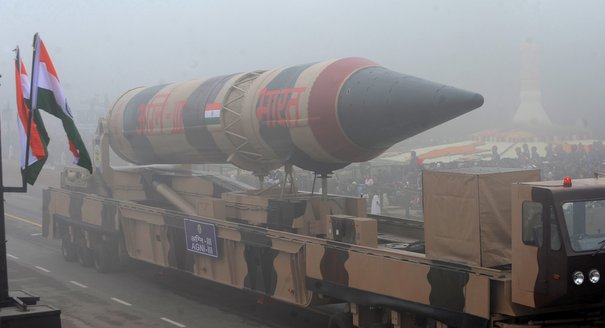As is well known, U.S. President Barack Obama has affirmed his administration's readiness to seek an urgent ratification of the Comprehensive Nuclear Test Ban Treaty (CTBT) as one of the priorities of its foreign policy. At the same time, the lively debate on this issue, which has already been launched in that country, shows that it will be by no means easy to achieve this. In particular, the recent U.S. strategic review, led by Clinton's former defense secretary William Perry, does not contain unambiguous recommendations to the current administration to ratify the Treaty.
Opponents of this step, led in the specially-created Congressional commission by the former defense and energy secretary in Republican administrations, James Schlesinger, cite as one of their main arguments the point that during the talks on the elaboration of the CTBT in Geneva in the mid-nineties, firm and unambiguous agreement was allegedly never reached on the scope of the Treaty (i.e. what kinds of experimental activities on nuclear devices should be banned, and what can be permitted while the Treaty is in force). Therefore, they say, strict compliance with the CTBT is impossible to monitor. Based on this key argument, they go on to claim that Russia believes that participating in the Treaty does not prevent it from carrying out so-called "hydronuclear experiments," during which a small amount of energy can be released as a result of the accompanying chain reaction. This, in turn, leads to unilateral advantages that threaten U.S. national security.
It is difficult for the Democrats to brush off these remarks without solid counterarguments, because the 60 votes on which Barack Obama's administration can currently rely in an ideal scenario are clearly insufficient to ensure ratification of the CTBT by a qualified majority in the Senate; therefore, the votes of Republican senators are badly needed. At the same time, it should be remembered that exactly 10 years ago, during the Democrats' first attempt to ratify this Treaty, it was the apparent weakness of these counterarguments, along with strict party discipline, that led to the successful "toppling" of the CTBT by the Republicans in the U.S. Senate.
Under these conditions, supporters of the ratification of the Treaty by the United States are currently making energetic efforts to rebuff the flawed theses of James Schlesinger and the influential Republicans who share them. Broad circles of international public opinion also support the ratification of the Treaty. In light of the fact that the swift ratification of the CTBT by the United States fully corresponds to Russia's interests, it would seem that we, too, should not remain on the sidelines of this debate, especially since a recent statement by the G8 calls on us to take an active stand. In particular, the following steps could be taken:
First. Confirm our official position at a high level, as made public during the ratification of the Treaty by the State Duma in 2000,(1) that according to the CTBT all test explosions of nuclear weapons are banned, including so-called "hydronuclear experiments," whatever the level of energy released.
Second. Confirm and develop our 2001 proposal(2) to elaborate with the United States additional measures to build trust and improve transparency with regard to activity on nuclear test sites. In particular, it might be possible to propose beginning talks on this question in the nearest future, without waiting for the CTBT to come into force.
Third. Step up work with countries like India and Iran on the signing and ratification of the Treaty, which are needed to enable the Treaty to come into force, indicating that such a step would facilitate the expansion of mutually advantageous economic cooperation with Russia and other countries and would improve India’s and Iran’s global reputation.
The above considerations should be taken into account when preparing Russia's position for the next Conference on Facilitating the Entry into Force of the CTBT, which is due to be held this fall in New York. If they were reflected in the president's message to the Conference or the speech of the Russian representative to the Conference, this, in our opinion, would fully correspond to the stated goal of this important forum and facilitate the prompt ratification of the Treaty by the United States.
Footnotes
(1). See the speech in the State Duma by Yury Kapralov, director of the Russian Ministry of Foreign Affairs’ department of security and disarmament issues (January 2000). Yury Kapralov stated specifically that "High-quality modernization of nuclear weapons is possible only if hydronuclear tests with any level of fission energy release are carried out, while such tests directly violate the CTBT." And further: "There exists a danger of concealing hydronuclear experiments from the CTBT verification mechanism. However, we believe that they could be detected by a special device placed in the immediate vicinity of the venue where the experiments are carried out..."
(2). See the speech by Igor Sergeev, advisor to the Russian president on the issues of strategic stability, at the second Conference on Facilitating the Entry into Force of the CTBT (New York City, November 11, 2001). General Sergeev specifically suggested "examining the possibility of elaborating additional monitoring measures for nuclear test sites, going far beyond the framework of the provisions of the Treaty; such measures might include exchanging geological data and the results of certain experiments, the installation of additional sensory devices, and other measures."
